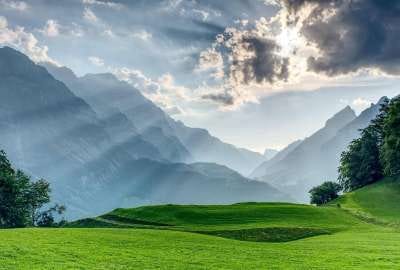‘Who Do You Think You Are?’
When someone asks you to identify yourself, how do you respond? Do you locate yourself via your race, class or gender? Your place of origin or your faith? Perhaps your main signifier lands on what you do or how you feel? How we locate ourselves, is one of the most subtle, yet significant things that we do on a daily basis. Our response is also dependent on who is asking and their positionality or how we perceive it.
In the UK, we have just celebrated/commemorated 75 years since the Empire Windrush landed on these shores; carrying pioneers from the Caribbean. Among those new arrivals were my maternal and paternal grandparents, who were invited to the ‘Mother Country’ to rebuild Britain after World War II. My parents who later followed them (from Jamaica) and my siblings (born in the UK) are a part of that Windrush legacy.
Like many that take the courage to journey into the unknowing, our Windrush pioneers were being asked to trust; to (re) locate themselves, physically, spiritually and psychologically. Prophetically, they were being asked to forget the former things, no matter how much excitement, trepidation and cognitive dissonance they may have been experiencing. It was seen as necessary in order to fit in. Adapt. Assimilate. A matter of survival. They didn’t have the language to articulate what they were experiencing; even when confronted with a hostile environment that challenged their sense of belonging and identity.
Where do you locate yourself?
Perhaps their response was dependent on where they located their trust. For many ‘Their Eyes Were Watching God’ (to quote Zora Neale Hurston’s famous book). Others may have been driven by the publicity for the recruitment drive that painted a picture of ‘England’s green and pleasant land’ where the ‘streets were paved with gold’. Some might say that their pioneering was a result of innocence, naivety, hope and ‘blind faith’, perhaps quiet desperation. But they came and died to an old self to become something new.
I have long been fascinated by the topic of ‘Being and Becoming’ and the questions around identity and belonging that seed themselves in the mystery of John’s Gospel.
Firstly, priests and Levites are sent by Jewish leaders of the day to ask John the Baptist to locate himself ‘Who are you? Where are you from? Identify yourself so we can go back and tell our overseers’. Later, when Jesus locates himself, he is confronted by the Pharisees with: ‘Who Do You Think You Are?’. They take um-bridge with him for placing himself in close proximity relationally to God, his Father. Christ makes things worse by stating that if they do not recognise him, that they must be related to a different spirit ‘the father of lies’, suggesting they are not located where they claim to be otherwise they would know (and love) him. They decide that if he is identifying himself with the Father (yet acting differently from them – unrestrained, authentic, going around freeing and loving people) that he must be of an opposing/demonic spirit; for only they are allowed to legitimately represent God to common man.
Because Jesus has the gall to criticise their systems and structures, their way of doing things; they decide something must be done. Responding from your true location when you are deemed as ‘other’ can be risky- which is why there is such a battle to keep us from really knowing our true sovereignty in the first place.
And so, how we locate ourselves matters, whether we keep our eyes fixed on the God of our understanding or we allow ourselves to be distracted by the bread and circus of false advertising and ideas that continuously sell us lifestyles that we can only obtain if we ‘try just that little bit harder’.
As with the Windrush pioneers so it is with those who venture with courage and commit themselves to what was yet to be known for the sake of those to come. They paved the way and made the best of their unknowing, continuously inquiring of the daily manna they had been given; ‘what is it?’. Curious, listening, watching and praying for a better kingdom to come; one of peace, justice, liberty, solidarity, unity and compassion. It turns out that we are the one’s they were waiting for, so how are we locating ourselves?
Many of the original Windrush pioneers are now gone, but they are not forgotten. For me, they are among the the Cloud of Witnesses. Ancestors worthy of honour who ran the race well. Whether we recognise it or not, we are all part of the Creator’s algorithm, moving through endless possibilities and probabilities until we come into alignment, to our true north, where our sovereign identity resides.
© Natasha Godfrey 2023






Bless you
Excellent 👌and authentic ❤️